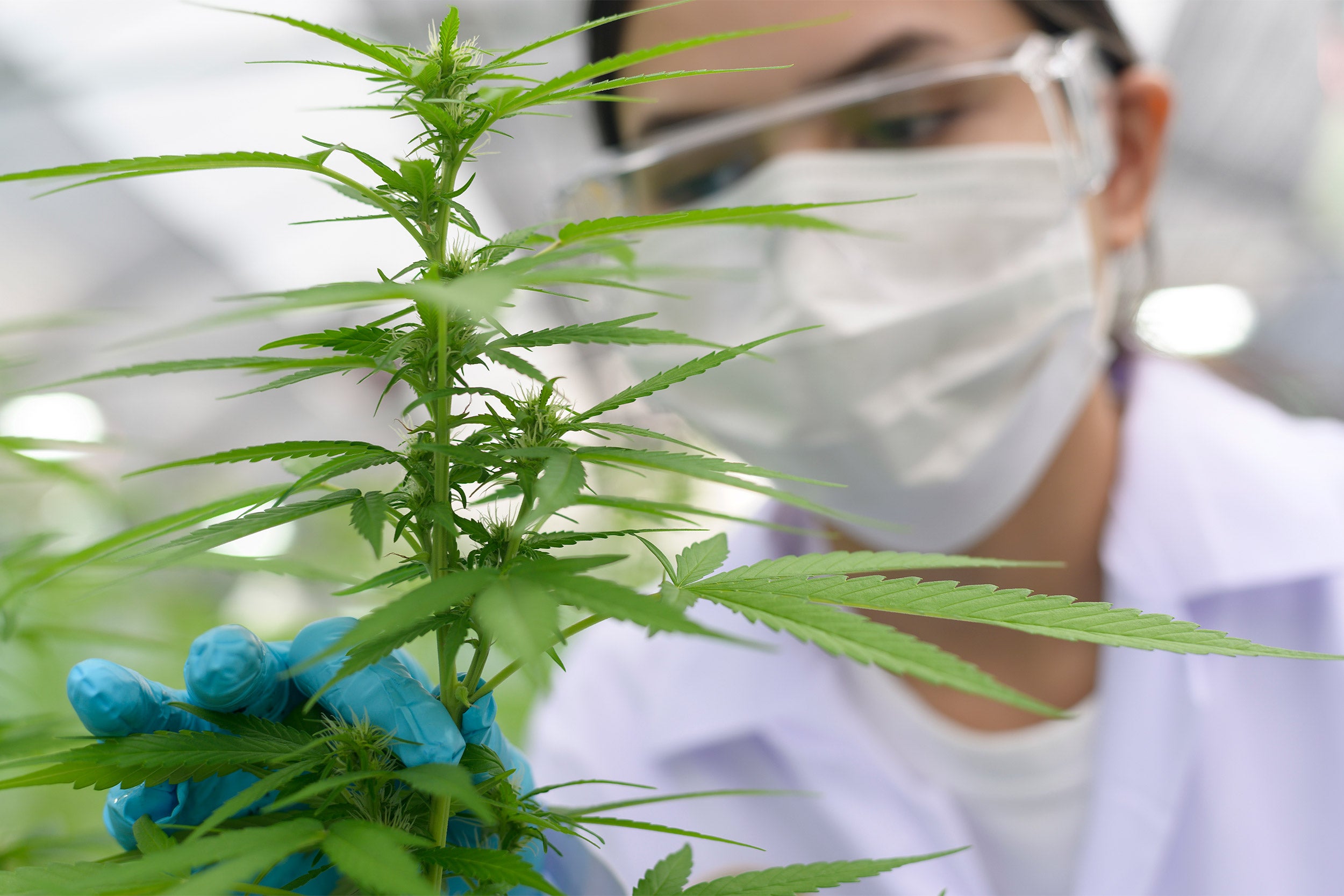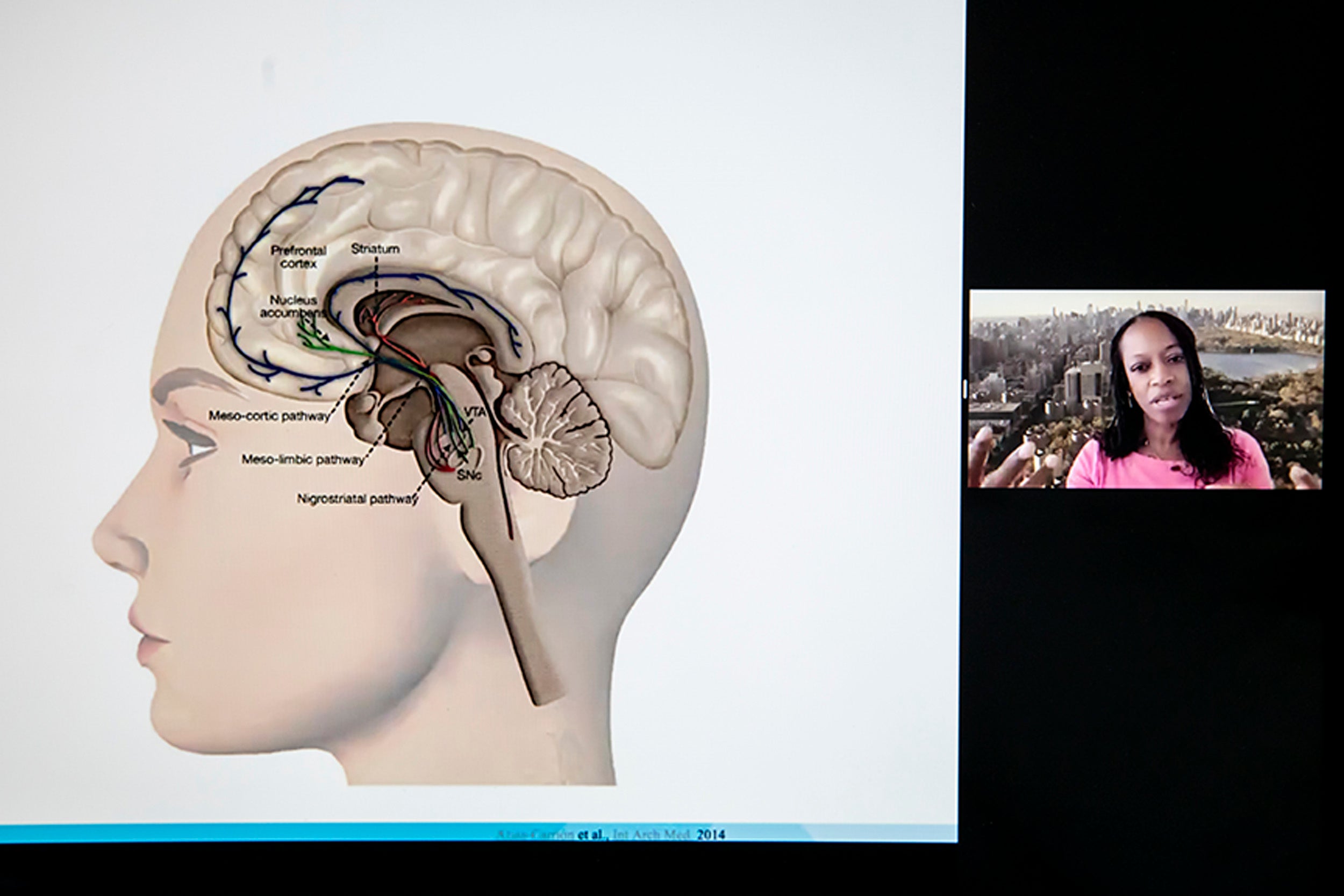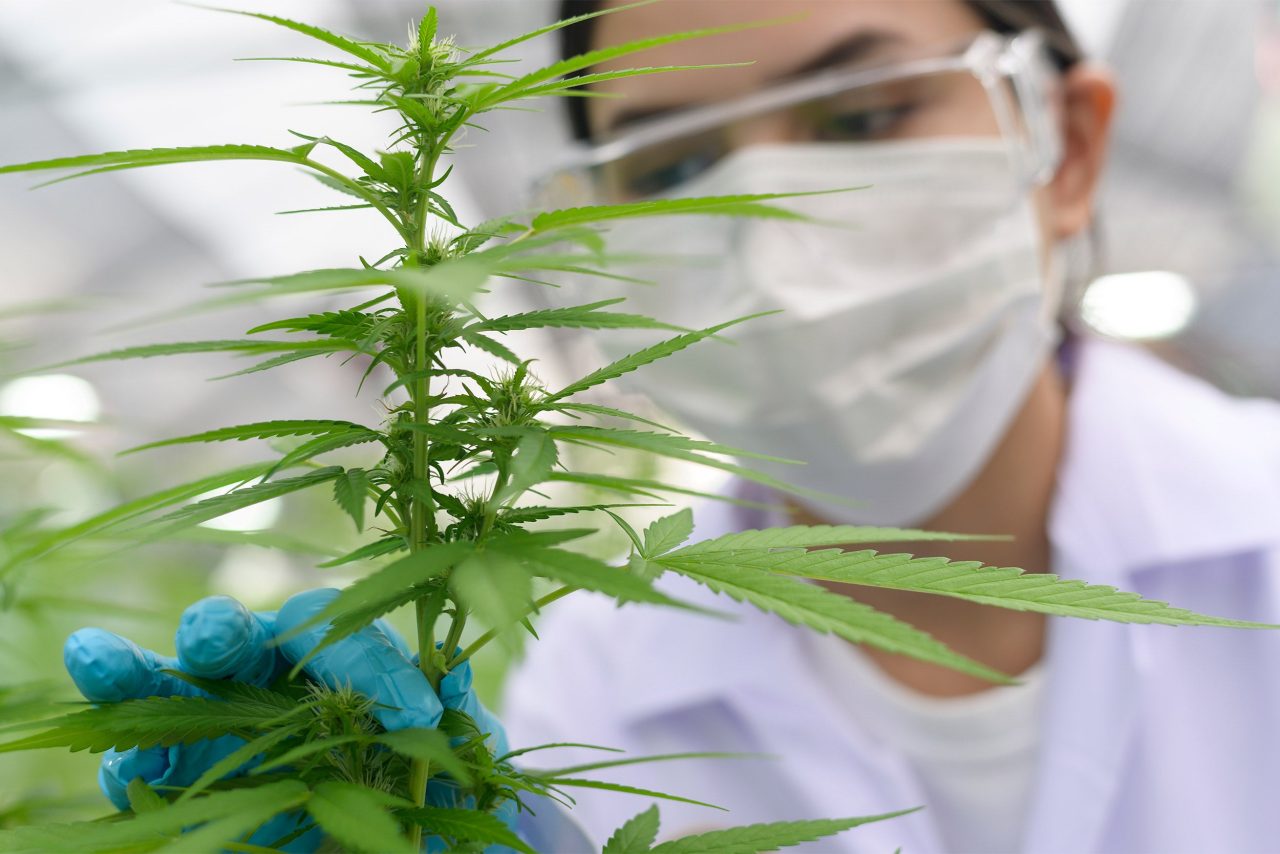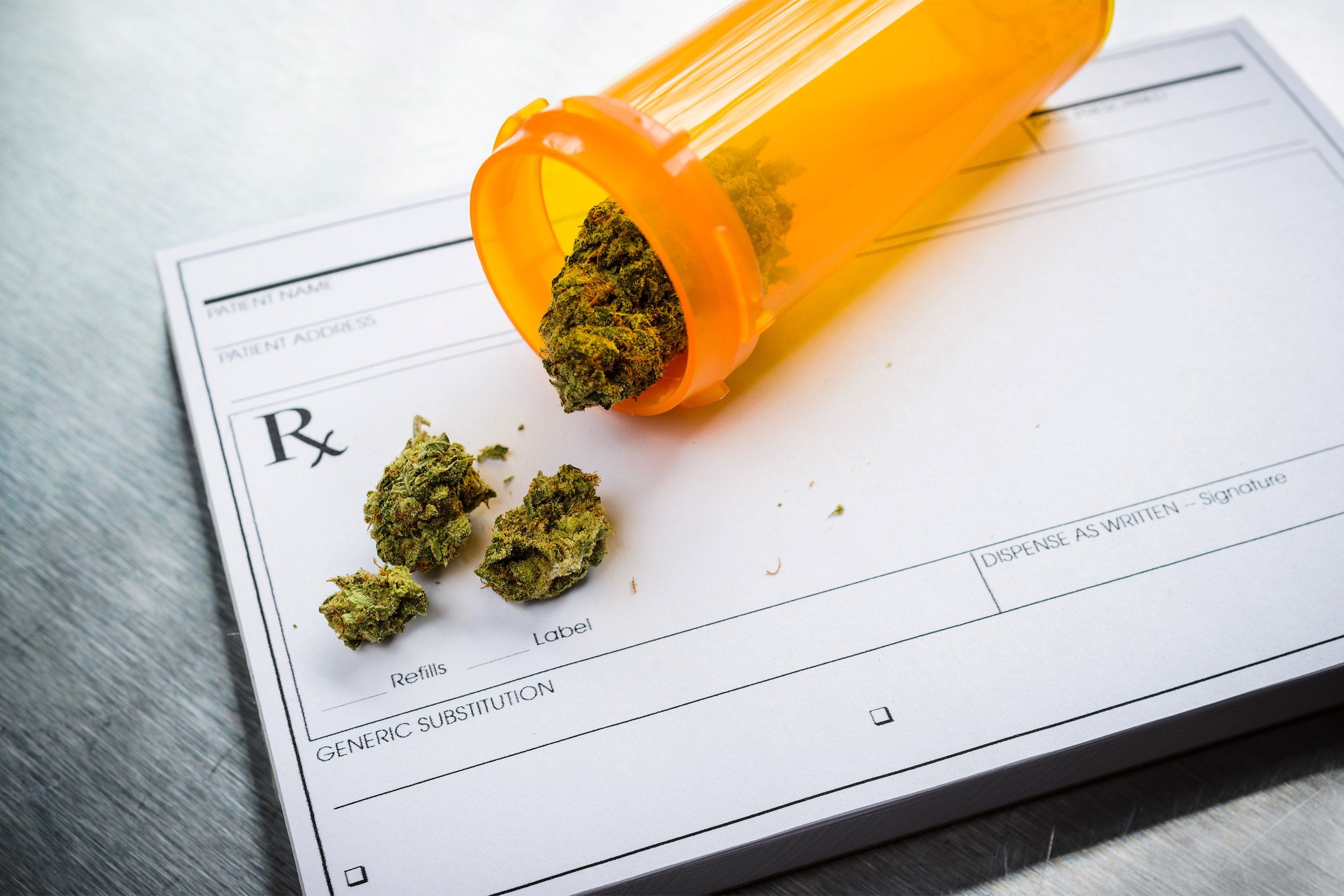
Although nearly 70 percent of states have legalized the medical use of cannabis products, some health care professionals are taking a closer look at its effect on the brain.
iStock by Getty Images
Health
It may be increasingly legal, but it doesn’t mean cannabis is safe
Neuroscientist says jury still out on addictive qualities, effects on neurodevelopment of fetuses, adolescents
A recent CBS News/YouGov survey found that two-thirds of Americans want recreational marijuana use to be legal. Nearly 70 percent of states allow the medical use of cannabis products and a growing number have legalized recreational use.
But neuroscientist Yasmin Hurd says that doesn’t mean cannabis gets a clean bill of health.
What we consume as well as when in life we are exposed to it play major roles in how our brains may be affected. That was the message from Hurd, speaking in the online presentation “Neuroscience and Cannabis: Implications for Law and Policy” — which fittingly took place on 4/20, a cannabis culture allusion to marijuana.The hourlong presentation was part of the Project on Law and Applied Neuroscience, a collaboration between the Center for Law, Brain and Behavior at Massachusetts General Hospital and the Petrie-Flom Center for Health Law Policy, Biotechnology, and Bioethics at Harvard Law School.
Hurd is the Ward-Coleman Chair of Translational Neuroscience and the director of the Addiction Institute at the Icahn School of Medicine at Mount Sinai. She quickly reviewed the legal history of cannabis in this country, noting the huge racial disparities in arrests, convictions, and other penalties, such as the separation of mothers from their newborns following positive drug tests.
But while the biased application of law enforcement regarding marijuana has led to a trend toward legalization, the science is more unclear. Even beyond its “complex history” and “complex legal status and policies,” cannabis is a “complex plant,” said Hurd. “Cannabis contains over 500 chemicals, including over 140 cannabinoids that have a greater or lesser degree of psycho-pharmacological activity.”
And although Hurd focused primarily on cannabis’ best-known psychoactive compound — THC — and to a lesser extent CBD, she pointed out that their interaction with the human brain is complicated by another factor: the human body’s own naturally occurring cannabinoids.
“If it feels intoxicating, it means it is binding to a receptor and changing your brain,” said neuroscientist Yasmin Hurd. “The question is for how long — and does it increase your risk for psychiatric disorders?”
Rose Lincoln/Harvard Staff Photographer

These so-called endogenous cannabinoids — or endocannabinoids — are neurotransmitters that monitor cell interaction. “The endocannabinoid system is critical for regulating how cells speak to each other,” she explained, governing decision-making, emotional reactivity, and working memory. Because consumed cannabis interacts with the same receptors that endogenous cannabinoids connect to, the activation changes not only how we feel but how we think.
That, she pointed out, is the point of recreational cannabis use. “If it were benign, nobody would use it.
“If it feels intoxicating, it means it is binding to a receptor and changing your brain. The question is for how long — and does it increase your risk for psychiatric disorders?”
To understand possible negative impacts on the brain, researchers are looking at whether cannabis may in fact have addictive qualities. THC, for example, interacts with the body’s cannabinoid receptors in a way that increases dopamine, a neural “reward.” This pleasurable outcome may be why roughly 30 percent of people who regularly use the drug will develop cannabis use disorder, which can increase anxiety.
However, Hurd noted, this disorder may be a “chicken or egg” situation. “Did the person have a personality disorder” which they self-medicated with cannabis, she asked. “Or did the cannabis contribute to it?”
Cannabis’ potentially most significant impact is on neurodevelopment — the developing brain. During prenatal development, for example, the endocannabinoid system is rapidly growing and changing. When outside cannabis is introduced — such as when a mother smokes or consumes marijuana — what happens is “significant,” Hurd said. “Placental programming is essential for neurodevelopment and aberrations linked to psychiatric risks.”
These changes occur when there is cannabis exposure. But, as with cannabis use disorder, they may have other causes. “Stress produces a much stronger effect” on the fetus, said Hurd. In addition, while the combination of stress and cannabis appears to have a synergistic effect on these changes, the long-term effect of these changes has not yet been determined.
Returning once again to the legal ramification of this science, Hurd said: “If we are going to arrest women for smoking cannabis, we should arrest most of society for the stress” it causes in pregnant women.
Adolescence is another period of particular vulnerability. The prefrontal cortex is the last part of the brain to achieve maturity, Hurd explained. Still growing until we are in our early 20s, this area has shown structural changes in teens and young adults who have used cannabis — once again, resembling the changes seen in stressful conditions.
Another complicating factor is the variability of cannabis. “Today” said Hurd, “we are seeing such high concentrations of THC in cannabis that it overpowers our endocannabinoids.” While the long-term effects of THC on adolescents include stress sensitivity, high-dose THC also impacts decision-making she said.
It would be a mistake to only study THC, however. Another commonly known chemical, CBD, has very different effects. Unlike THC, CBD is not intoxicating nor does it induce chemical “rewards.” And while high doses of CBD appear to exacerbate anxiety, low doses have been shown to actually reduce it, she said.
Pointing out that “There is no medicine that doesn’t have side effects,” Hurd concluded that without more research, the idea of cannabis as a medicine remains complicated. Variables about what that cannabis contains, in what potency, and when it is consumed all matter — as does how it is consumed. “No physician would say smoking something is healthy.”
As a guideline, she reiterated, “Your brain doesn’t fully mature till your mid-20s, so the longer you can wait to start consuming the better for brain health.” Beyond that, she said, “Look at the cannabis you’re consuming — make sure it’s not high-dose THC and that it has CBD.
“Do your homework on what you put in your body.”




